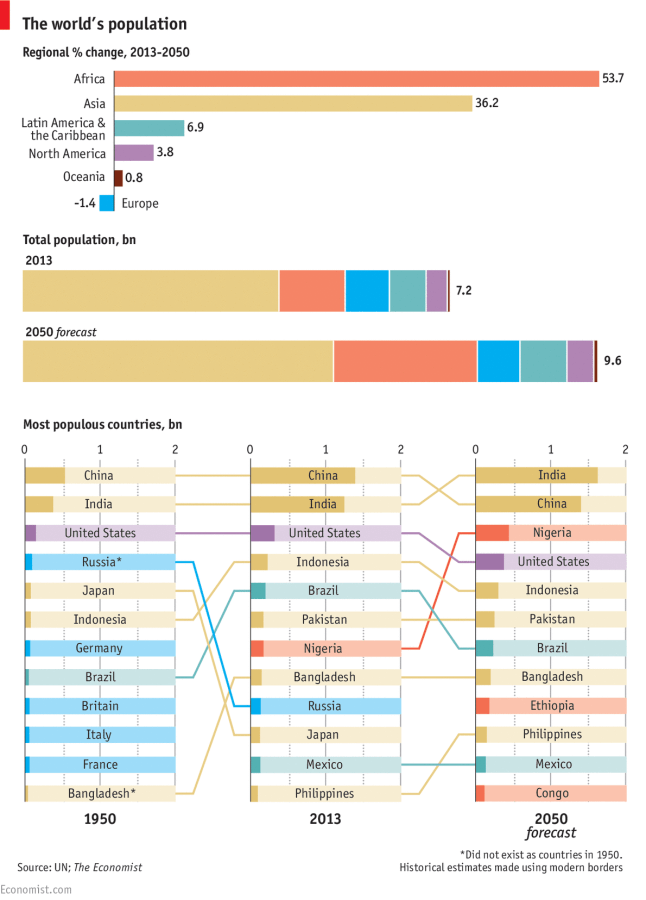As the world changes…
Today, on Twitter, I saw this chart that I had to click on and visit the original site (The Economist) to read more details.
The article isn't new – it's been out a bit – but the message isn't one I'd spent a lot of time thinking about. The world is growing. No doubt…but in places where most people haven't developed a lot of competency when it comes to managing resources.
Ask yourself, how ready are you to hire and lead staff from India, China, Pakistan or Bangladesh?
 So will WordPress…
So will WordPress…
WordPress is growing – powering 23% of the web. More importantly, over 50% of the sites created last year used WordPress.
It's happening around the world, which is why both Matt Mullenweg and Andrew Nacin spoke about internationalization so much this last year at WordCamp San Francisco. You can view their talks here and here.
So the codebase and the project will embrace more and more globalization.
But what does that mean for you?
And so should you.
As the world changes, and as WordPress changes, you will need to change too, right?
Over the years I've regularly hired engineering staff from a variety of countries (like India, Bangladesh, Brazil, and Mexico, among others). Now, in my new role at Crowd Favorite, I also have staff who live in Romania and Bulgaria.
Most people I talk to in the US have either had or heard negative stories of managing staff in “remote” places. But if you look at that chart, and the predictions are right, the majority of new developers entering the market will come from countries most people don't have experience with.
Tips for working internationally
I've written about virtual and remote teams, as well as how to develop a culture of high performers.
Those resources should help you but here are five tips I hope will help.
- Plan for regular communication. I prefer daily calls.
- Visit the countries where you plan to hire staff. Work with local experts to help.
- Hire teams rather than individuals – it's easier for everyone.
- Practice makes perfect. Don't quit after a single bad experience.
- Create mixed project teams, combining various resources & skills.*
* In other words, sometimes you'll need to force US staff to step out of their comfort zone because accents and time zones will drive them to choose local teams over cross cultural teams. As a leader, part of your job is to help your teams get past their initial reservations.
If you want to talk more about managing remote staff, you can always hit me up on Clarity.
